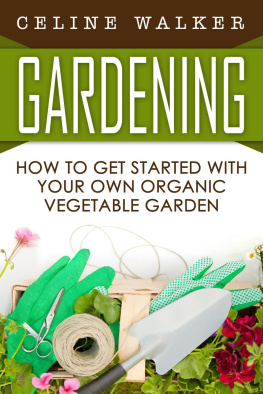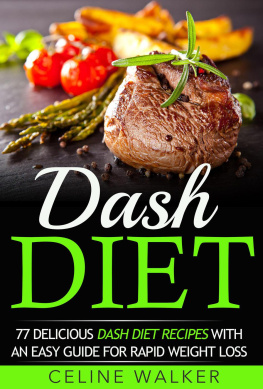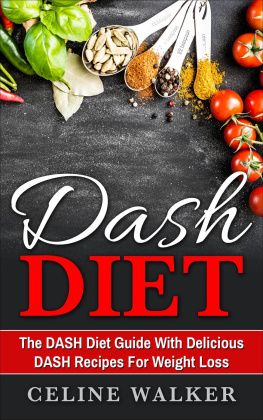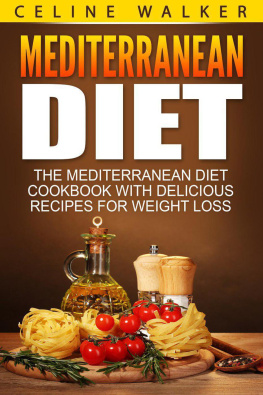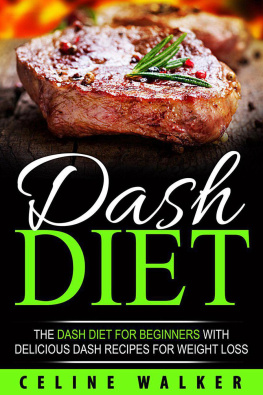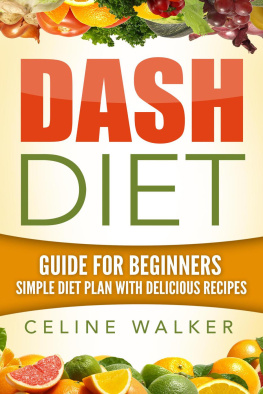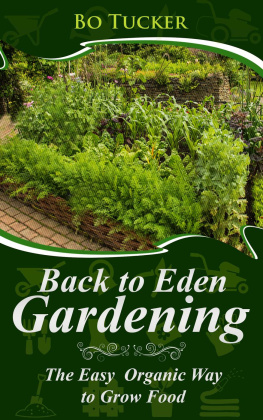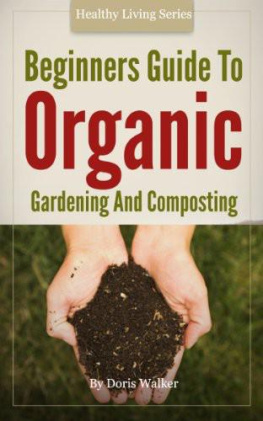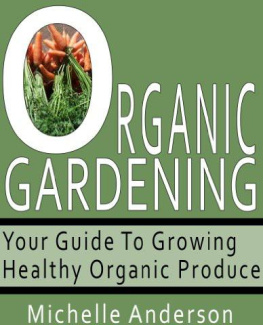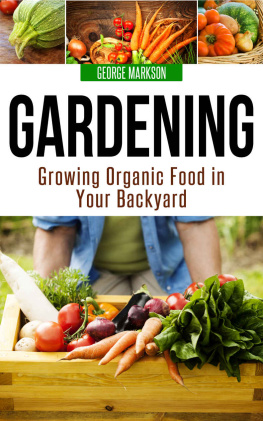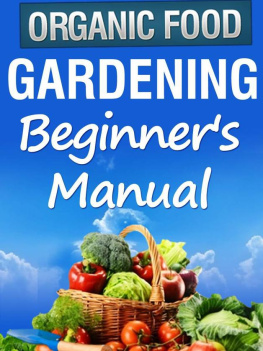Gardening
How to Get Started With Your Own Organic Vegetable Garden
Copyright 2016 by Celine Walker
All rights Reserved. No part of this book may be reproduced in any form without permission in writing from the author. Reviewers may quote brief passages in reviews.
Disclaimer
No part of this publication may be reproduced or transmitted in any form or by any means, mechanical or electronic, including photocopying or recording, or by any information storage and retrieval system, or transmitted by email without permission in writing from the publisher.
While all attempts have been made to verify the information provided in this publication, neither the author nor the publisher assumes any responsibility for errors, omissions or contrary interpretations of the subject matter herein.
This book is for entertainment purposes only. The views expressed are those of the author alone, and should not be taken as expert instruction or commands. The reader is responsible for his or her own actions.
Adherence to all applicable laws and regulations, including international, federal, state and local laws governing professional licensing, business practices, advertising and all other aspects of doing business in the US, Canada, UK or any other jurisdiction is the sole responsibility of the purchaser or reader.
Neither the author nor the publisher assumes any responsibility or liability whatsoever on the behalf of the purchaser or reader of these materials. Any perceived slight of any individual or organization is purely unintentional.
Introduction What is an Organic Garden?
Love gardening? Hate chemicals? You're about to have a crash course on what it takes to start growing your own organic produce.
This book contains information on plants, soil, tools and troubleshooting tips on how to get started as an organic gardener.
Organic gardening as we know it has only been around for the last few decades, it's only been in the past century that chemical fertilizers have come into existence. Organic garden literally takes you back to your roots and to the natural way that things were done before chemicals became today's fast fix. There's a growing amount of knowledge that many of these chemicals are incredibly harmful to us and the environment which is why so many people are choosing to do something about it.
Commercial produce is laced with a huge variety of chemicals and growing your own products is the only way of knowing exactly what is in your food.
But, organic gardening is so much more than just cutting down on pesticides and fertilizers. It's a way to change your way of looking at food and live a much healthier life. By tending an organic garden you're doing something good for the environment, good for your budget, and good for your family. Not only that, it's a great way to stay in shape and feel more connected to the world around you.
How to get started with your own organic vegetable garden gives you all the information you need to get your garden started so you'll be enjoying homegrown, organic produce sooner than you know.
Thanks again for downloading this book, I hope you enjoy it! Read on to find out just what makes a garden organic.
Chapter 1 Why Bother with Organic Gardening?
T here are many great reasons to start a garden, but why choose organic gardening? People will tell you all sorts of reasons not to it's harder, you could just go to the store, it costs more. But does it really? Can you put a price on your health? There are many benefits to organic gardening, so if you need a little convincing that you really should go organic, listen up.
Cost Effective
Y es, organic gardening is actually cheaper than conventional! Since you're not paying for chemical fertilizers or pesticides you'll find that you spend much less on growing the same produce. Science has shown that conventional and GMO crops do not have a significant enough effect on yield to be worth the additional cost. Many of these products are intended to give you a quick boost for fast produce, but they damage the soil in the long run and can also be passed on to you.
The same applies to herbicides, since the thick layers of mulch protect against weeds growing from underneath and can be easily weeded on top. If organic gardening teaches us anything, it's that you don't need these expensive products at all.
Since the soil in an organic garden is much better quality, plants can be more efficient. Organic gardening takes less water which, unless you're collecting rainwater, makes it much cheaper to keep up with. The natural thick layers of mulch and soil hold more water, so you won't have to water as much and will save money on your water bill.
You can even make money from your organic garden. As grass or flowers, your garden does not do anything but cost you money. You'll often find that growing your own produce can end up giving you more than you need, and since organic produce is at a premium you can sell it for a profit.
Better Food
T here's some debate about the real difference in organic vs conventional foods. After all, an apple is an apple. In 2009, a study showed that there was no significant difference in nutritional amounts between produce. However, sine then, scientists have combined multiple studies and come to conclusions that seriously undermine that study. University of Newcastle scholars found that there are 17% more antioxidants in organic food and that in some products the increase was as much as 60%. While you may see this as superfluous since the number of calories and nutritional values stay the same, you would be wrong. Flavones, a type of antioxidant found in most produce, were as much as 69% higher in organic produce, and are known to actively lower a person's risk of stroke. Antioxidants are responsible for protecting our bodies from the very oxygen we breathe and the effects of free radicals on our cells.
Conventional produce not only has fewer antioxidants but is also a source of free radicals thanks to the chemicals and pesticides found in the food. It's not enough to just wash a product, many chemicals make their way inside as part of the makeup of produce. Residues in conventional produce are 100 times higher, and while you might not think this is a big deal, consider what these do. Many pesticides are linked to cancer, deficiencies, abnormalities, even death in high quantities. Why would you eat this voluntarily?
Organic food also tastes better. With blind taste tests, most people choose organic. But it's not only this. After having eaten only organic produce for a prolonged period many people can't go back to conventional because they find they can now taste the added chemicals. While you may be desensitized now, cutting those chemicals out means that you'll really be able to tell the difference.
Environmental Benefits
O rganic is also good for the planet. Chemicals often poison local wildlife and can leach into rivers and streams through the soil. By avoiding chemicals and using natural methods, you're not at risk of hurting any visitors who may come by. It also helps to promote biodiversity. This means that the natural ecosystem within your garden is maintained so that your garden helps itself to grow and you don't find yourself overwhelmed by one type of plant or one invading pest.
Next page
